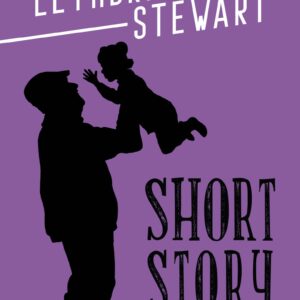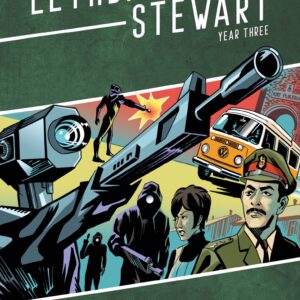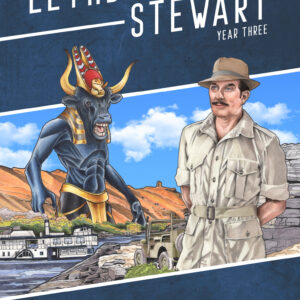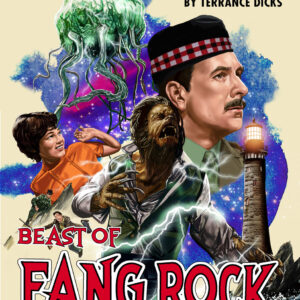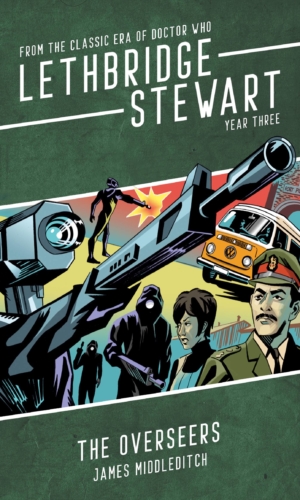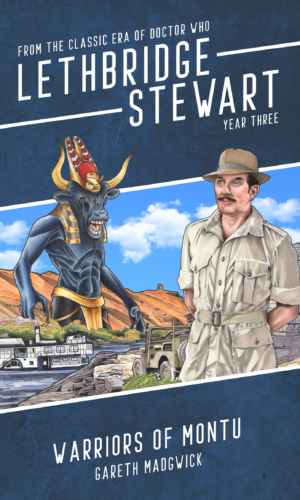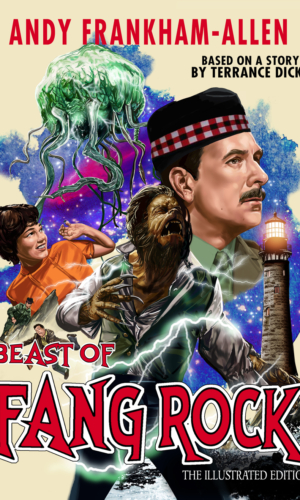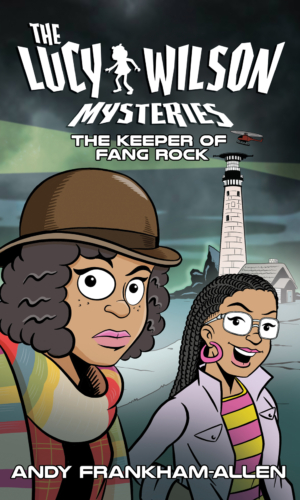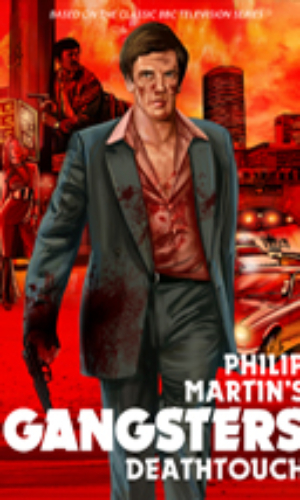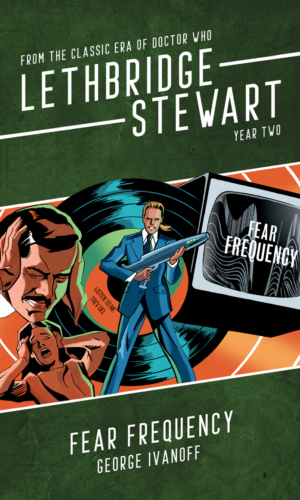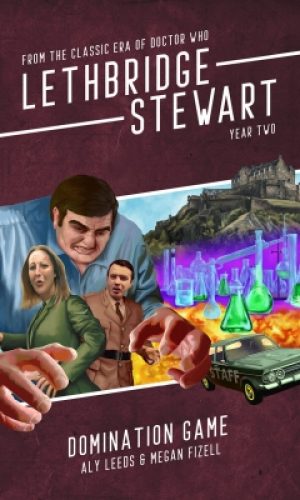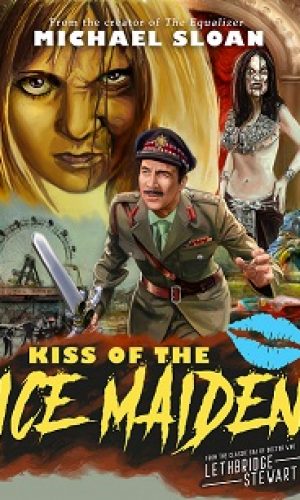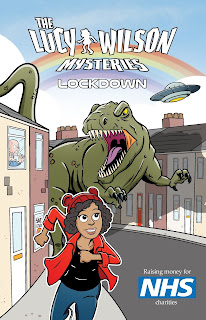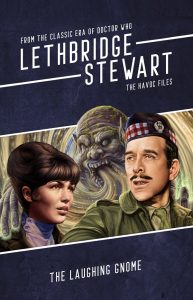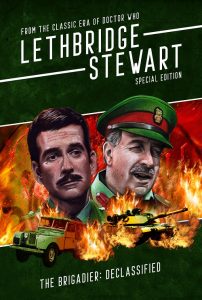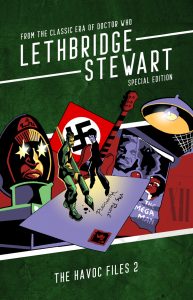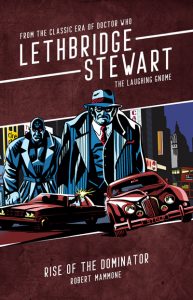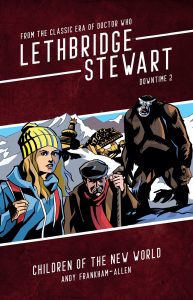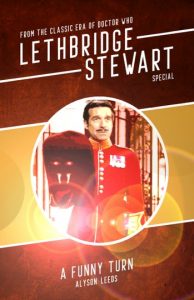Format: DVD
Warts & All: Trundlesome Robot With Big Rubber Claws
Quote: Jim’ll fix it
Review: People will say there’s something wrong with me, but I really quite like Colony In Space. A couple of sleepless nights resulted in me watching it through a little faster than planned, what with finding myself wide awake at 3 a.m. at one point,, filling the time with the final two episodes in a row and it singularly failed to send me back to sleep. Filling time, to be fair, is what the adventure does quite a bit, with tables being turned between the different factions with enough frequency it invests proceedings with a kind of perpetual motion. Albeit slightly repetitive.
I don’t doubt my very favourable memories of the Target novelisation colour my perceptions here – when the Doctor is sampling some film on the ‘entertainment’ console I’m calling to mind the brilliant depiction of an overcrowded Earth in Hulke’s prose more than I’m drawn in by what’s on screen. Still, Hulke spins a decent four-parter into six by transposing familiar Western fare onto an alien planet (only a bit less alien to those of us who live down the tracks from the St Austell clay pits where it was filmed), with peaceful colonists (ranchers) being driven off their land by a big mining corporation (greedy prospectors), while bartering and/or running into trouble with the indigenous savages (Injuns). Where the story scores mostly for me is in its SF element, with the Primitives turning out to be the descendants of an advanced civilisation, reduced to totemic worship of a Doomsday Weapon.
The aliens are very alien, with three distinct ‘castes’ and certainly the b/w photos of their mutated faces in the old Doctor Who Monster Book used to give me nightmares as a kid. The shrivelled-baby in the high chair is less convincing now, but really it’s not that badly realised and the idea is sufficiently creepy to outweight production limitations. As the leader of the aliens, he is a bit fickle though – he insists the Law must be obeyed and Jo and the Doctor be executed for trespass, even though Jo was brought to his City against her will, lets them go but warns them not to return on pain of death, then is easily persuaded to destroy his own City – and people! – to prevent the Weapon falling into the wrong hands. Despite being able to make things – like the Master’s gun – disappear at will. The IMC plot is very Scooby-Doo, fake projected giant iguanas and a rubber-clawed robot that we’re expected to believe made terrible scratch marks everywhere. But never mind, my bigger issues with this come in the gun battles, staged in a room with the interior dimensions of a barn, with automatic firearms and shooters sighting along barrels – and missing everything. Even so, on the rare occasions they hit something it’s usually a colonist or an IMC guard and lots of people die in this one. But you could be forgiven for not realising the bodies are stacking up. Would it have killed them (ahem) to have included a graveside scene or two to drive home the cost? There’s a line about tending to the wounded, but that’s it. Even the Doctor shows something of a colonialist disregard for the poor Primitives who bite the dust. And even Ashe’s sacrifice is made much more of in the novelisation than it is here. It’s that inconsequentiality of the violence and death that is more frustrating for me than the woeful marksmanship of the combatants.
Questions arise too over the Master’s role as the Adjudicator – fair enough that he’d adopt this guise as a means of finding out more about the planet, but why side with IMC – surely he’d gain more co-operation from the more easily manipulated colonists – who have in any case been there longer and are more likely to know the lay of the ancient ruins etc? There’s also a ridiculous cliffhanger where he decides that Jo and the Doctor are to fall victim to ‘stray bullets’ apparently solely because 25 minutes has elapsed and we’re due an episode end. The Doctor displays a remarkable gift for identifying planets from just looking at them and a frankly weird moment where he appears to actually consider the Master’s offer of joint rule over the universe. But despite all that – and probably more – I find myself quite enjoying it all. You’ve got Bernard Kay and John Ringham in there, familiar supporting cast faces from previous Who, you’ve got Gail from Corrie and Tony Caunter who was somebody in Eastenders, Delgado continuing to deliver evil with charm and the chemistry inherent in that Master-Doctor rivalry is always a pleasure to watch. And it offers a refreshing break from the Earthbound adventures surrounding it.
Ultimately though, I’m obliged to conclude that the TV episodes are so married in my mind to the novelisation that on some level I know what I’m watching is shorthand for a richer and fuller story that never quite made it to the screen. Mostly enjoyable.


